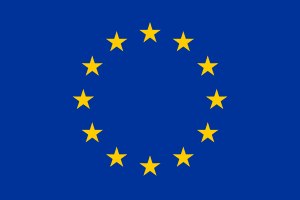 Image via Wikipedia
Image via WikipediaBy David Kepes
The European Commission released a report, on 16 June, condemning the widely divergent differences in member states’ international protection of citizens, which they implement through the Qualification Directive. This directive sets minimum standards for identifying people in need of protection, such as asylum granting.
Numerous member states, the report says, are interpreting the directive in very different ways, leading to unsatisfying results. The report identifies several key deficiencies, most notably issues of incomplete and/or incorrect transposition by member states.
The Commission has attempted to reinforce the directive before. In October 2009, it drafted an amendment that sought to clarify many of the identification criteria.
The executive found that the existing rules for identification were too broad, and many case decisions were being overturned on appeal. The amendment, still tabled, seeks to clarify the legal diction as well as harmonise the rights granted to refugees and those who benefit from subsidiary protection, which is no longer justifiable.
The largest differences in rights exist in the areas of duration of residence permits, access to social welfare, health care and the labour market. In addition to working on enhancing the rights, the amendment also wants to enhance migrants' access to these rights. Many countries lack rules and regulations for communicating to one another about the qualifications of migrants. Many educational degrees are not recognised, and in some countries the documentation cannot even be accessed by the migrants once they have left the country they are emigrating from.
This amendment has yet to be addressed by the European Council and Commissioner Cecilia Malmström called on the Parliament and the Council to adopt the amendment so that the risks presented by such diverging policies could be limited.
The Qualification Directive was drafted in 2004 and was designed to define common criteria for identifying cases that warrant international protection and to ensure that all member states were guaranteeing a satisfactory minimum of benefits to those in need of such protection. Unfortunately, the report states, the level of benefits conferred onto victims, as well as the chance of earning the protection status are very different and this has led to asylum shopping.
This can be very dangerous for asylum seekers, who may attempt to manoeuvre through Europe without any identification or security benefits. Many migrants face discrimination or find that they are unable to get asylum and end up becoming illegal residents in the country they settle in.
Countries with more favourable asylum practices are also worried about overburdening their welfare systems and their taxpayers. Member states had to transpose the directive by 10 October 2006. However, nine member states have been taken to the Court of Justice for failing to comply. Five cases were withdrawn, and judgements were given in four. Despite the findings of the report, all member states have previously said that they completed the transposition of the directive.








 Join our page
Join our page


0 comments:
Post a Comment